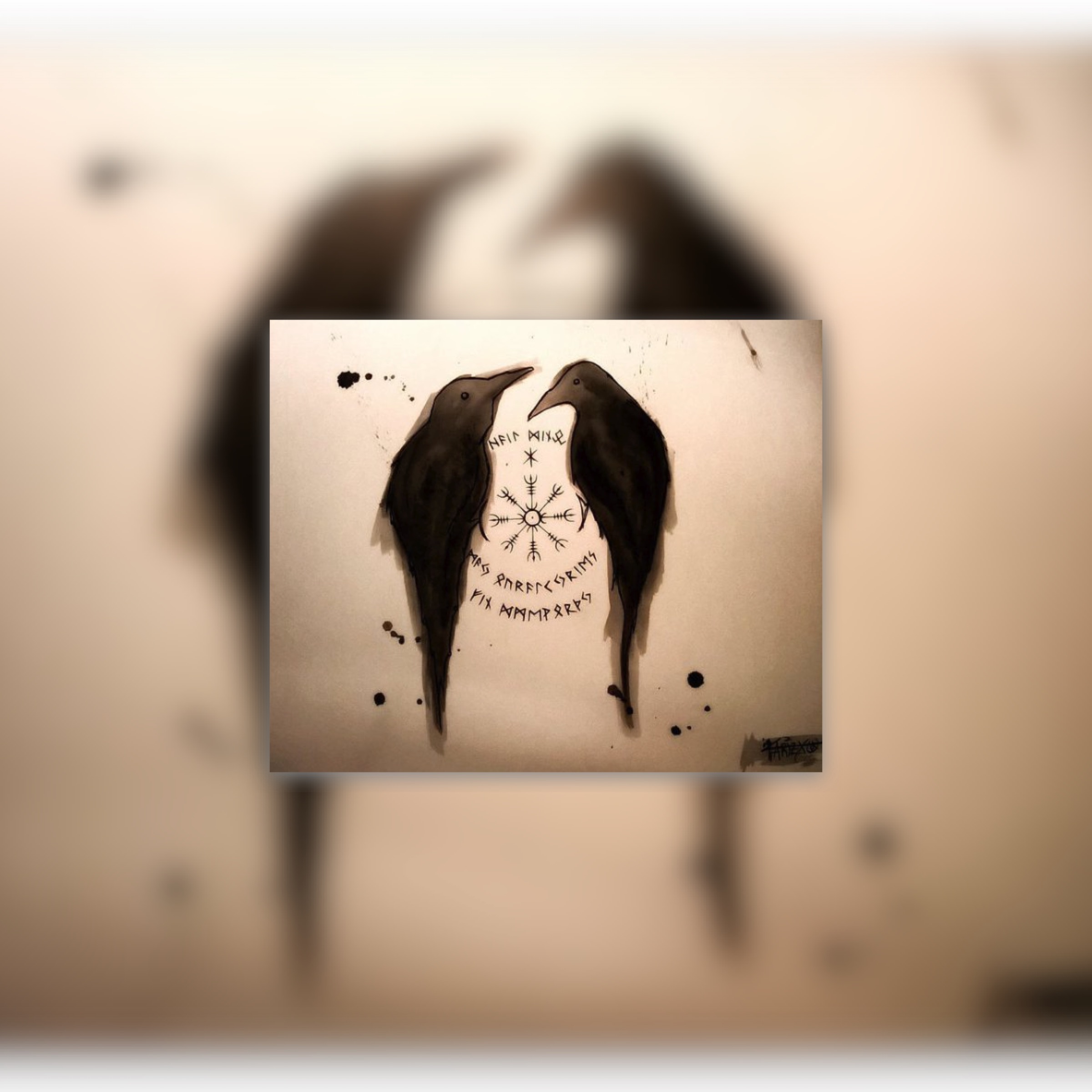Through the lands forsaken, Huginn1 takes flight
Not knowing the names of the requiem flowers;
Above the emerald fields2, Muninn3 soars in golden light.
Through the shadows cast by human spite,
In search for endless power.
Through the lands forsaken, Huginn takes flight.
Above the canvas where colors unite,
Solidarity and freedom they empower.
Above the emerald fields, Muninn soars in golden light.
Through the conqueror’s legacy, left behind as mortal plight;
Whispers of triumph and sorrow, trying to silence the howler.
Through the lands forsaken, Huginn takes flight.
Above the canopy of candles divine, shimmering with hope ignite;
Embraced with love, its wings bathe with benevolent showers.
Above the emerald fields, Muninn soars in golden light.
Omniscient, they recite, thoughts and memories through the tranquil night;
Half a gift of life, and half in death4 — to their one-eyed father5.
Through the lands forsaken, Huginn takes flight;
Above the emerald fields, Muninn soars in golden light.
This poem portrays the duality of our world, consisting of both good and evil, through the perspective of a pair of mythical ravens. The poem touches themes of human thought, conquest for power, freedom, love, and the cyclical nature of life and death. The poem is written as a villanelle, which due to its alternating structure, is very effective for depicting contrasting themes and blending them into one at the end.
-
Huginn (old Norse: “thought”) is one of Odin’s ravens who fly over the world and bring back information. ↩
-
Valhalla, the pristine heavenly land, is often depicted with lush greenery. ↩
-
Muninn (old Norse: “memory” or “mind”) is Huginn’s companion. ↩
-
Thoughts exist when one lives, memories persist post one’s death. Thoughts and memories reference Huginn and Muninn. ↩
-
Odin (Old Norse: Óðinn) is referred to as the one-eyed father. ↩


